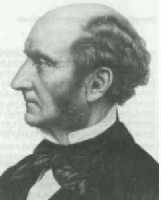The 75th anniversary of the first military use of nuclear weapons at Hiroshima has been the prompt for London’s Imperial War Museum to commission a a special example of reflective art. Es Devlin and Machiko Weston were preparing an exhibition, but have now produced a remarkable video called ‘I saw the world end’, so we can access their work online instead. This video is well worth watching and reflecting on, so I will embed it below, and it will be followed by some further reflections from me. Is Hiroshima to be a prompt to further conflict, or for learning? Much depends on finding the Middle Way in relation to it. You can see more about the context of the video on the Imperial War Museum site.
One of the things I find most helpful about the video is the way that it combines two perspectives, above and below the line. These can be seen as Western and Japanese, bomber and victim, but they are much more than that. For the most part they use very different sorts of language. Those above the line are scientific and universal: they think in terms of abstract generalities, either in terms of the science that produced the bomb or the justifications that launched it. Below it, however, there is only immediate overwhelmed experience and emotional response: the response of the right hemisphere of the brain that is desperately trying to respond to new experience, rather than the left hemisphere that marks the language above the line. Above the line, too, the language is often passive (rather like academic language, avoiding personalisation), but below the line, the bomb happens to real people in a real situation.
I have been reflecting on the ways that the helpfulness of our response to Hiroshima depends very much on whether we are prepared to straddle that line. A common response for anyone with a degree of sensitivity and compassion today is just to be enormously shocked by what happened, and to immediately feel the bombing to be a monstrous and inhumane action that must never be repeated. As long as we remain with that human experience of what happened and have sympathy with the immense suffering that occurred, we are likely to go on feeling like this. However, if we instead enter the world of the people above the line, we find a very different experience: one of abstract reasoning in which technologies are developed for what are sincerely believed in as humane ends, for the purposes of resisting Fascist regimes that were capable of even greater calculated cruelty than any that might have contributed to Hiroshima. We are in the world of utilitarian reasoning, in which the end justifies the means, and the lesser evil averts the greater one.
The challenge of practising the Middle Way in relation to this topic, as I see it, is to extend our awareness both above and below the line, not prematurely rejecting one tendency above the other, but rather putting them both into as large a context as we can manage. As a former ethics teacher, I have organised debates about the justification of Hiroshima between students, and am aware from this how quickly the whole issue can become over-abstract, as it becomes merely a matter of proving a moral theory, rather than maintaining our sense of what extreme human suffering is actually like. At times it can seem like an insult to the sufferers to debate their fate in the abstract – yet we necessarily do this all the time, whenever we give a specific situation the wider context of its relationship to other situations. At the point of judgement on medical resources, for instance, the suffering of a patient requiring an enormously expensive treatment can no longer be the only thing we consider. We start having to weigh it up against the further suffering that may result by not spending that money on other needful causes. Getting caught up completely below the line can be just as limiting as being caught entirely above it. We have to try to be amphibious, however difficult that may seem.
The utilitarian reasoning for Hiroshima ran along the lines that greater suffering might well result if the Allies continued to fight the war against Japan by conventional means. Japan was deemed unlikely to surrender before the end of the huge bloodbath that a conventional invasion of Japan would have required. The use of nuclear weapons, however, was intended to force a rapid Japanese surrender without this. Of course, such reasoning depends on the accuracy of our assessment of our actions and their likely effects, but in wartime it is very difficult to avoid such reasoning. Similar thinking had already been employed in the war against the Germans when the decision was taken to conceal the fact that the Enigma Code used by German communications had been cracked. Many Allied lives were thus lost in the short term that could have been saved, but in the cause of an ultimate victory. Remarkably, this strategy worked.
So, in my view, we cannot simply dismiss utilitarian reasoning. Utilitarian reasoning is capable of saving the world, and may have already done so. At the same time, we cannot rely on it exclusively, without constantly renewing our wider experience of both the practical and the emotional impact of our actions. However, helpful utilitarian reasoning depends on honest and accurate assessments of the effects of our actions of a kind that are all too rare in practice, taking into account even unknown unknowns as far as we can. Utilitarian reasoning can also be held responsible for much of our past treatment of the environment, and the insufficiently foreseen rebounding effects this is now having on us. There are no single abstract moral theories that can give us all the right answers in any situation, only a toolbox of different responses, and the potential to cultivate the kind of awareness and provisionality we need to use that toolbox wisely. I do not think that we should now try to answer the question of whether Harry Truman’s judgement was right or wrong, because it is our own judgements now that we need to take responsibility for, not his. However, the practice of trying to understand both sides of the question offers valuable resources to us even today.


